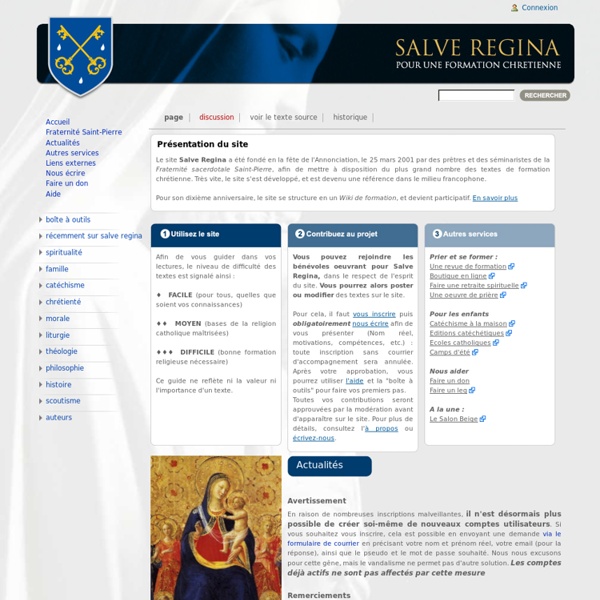



La Nef Ktotv | Accueil Zenit / vu de Rome English Prime Minister Sparks Debate Over 'Christian Britain' Archbishop of Canterbury Defends David Cameron London, (Zenit.org) | 9 hits England’s prime minister, David Cameron, triggered a debate last week when he spoke of Britain as a Christian nation. His comments published on April 16 in the Anglican newspaper, Church Times, set off a debate that is still continuing. read more Pope's Discourse to South African Bishops Says "your countries are thriving often against very great odds" Vatican City, (Zenit.org) | 95 hits Pope Francis received the a South African episcopal conference at the Vatican this morning for the Ad Limina visit. read more Vatican Spokesmen Urge Caution Over Pope's Phone Call Reports Say No Change in Doctrine on Divorce, Remarriage, Eucharist Rome, (Zenit.org) Ann Schneible | 688 hits Various news sources are reporting that Pope Francis has told an Argentine woman who has been civilly married to a divorced man for 19 years that she can receive Holy Communion.
Perepiscopus blog de Maximilien Bernard Interrogé par La Vie, Mgr Dognin, évêque auxiliaire de Bordeaux, avoue que le passage de l’Evangile qu’il a le plus de mal à commenter est celui-ci : « Jésus leur déclara : « Celui qui renvoie sa femme et en épouse une autre devient adultère envers elle. Si une femme qui a renvoyé son mari en épouse un autre, elle devient adultère. » » (Mc 10, 11-12) Effectivement : comment prêcher sur ce passage quand par … Lire la suite…
Chrétiens dans la Cité CathoWeb.org Actualité Traditionaliste - TradiNews MetaBlog